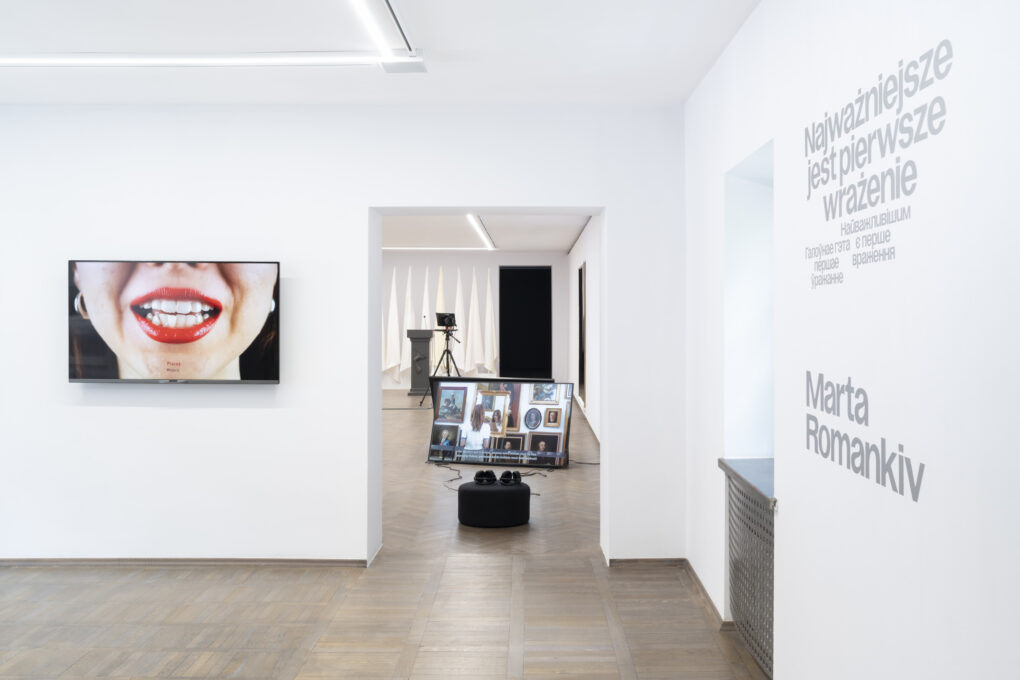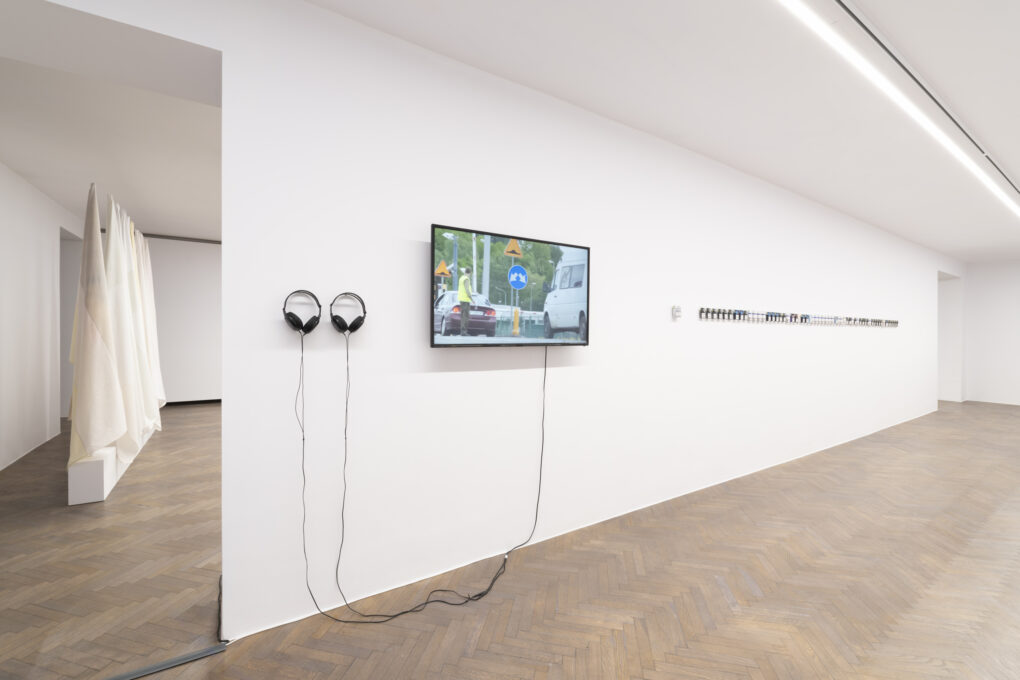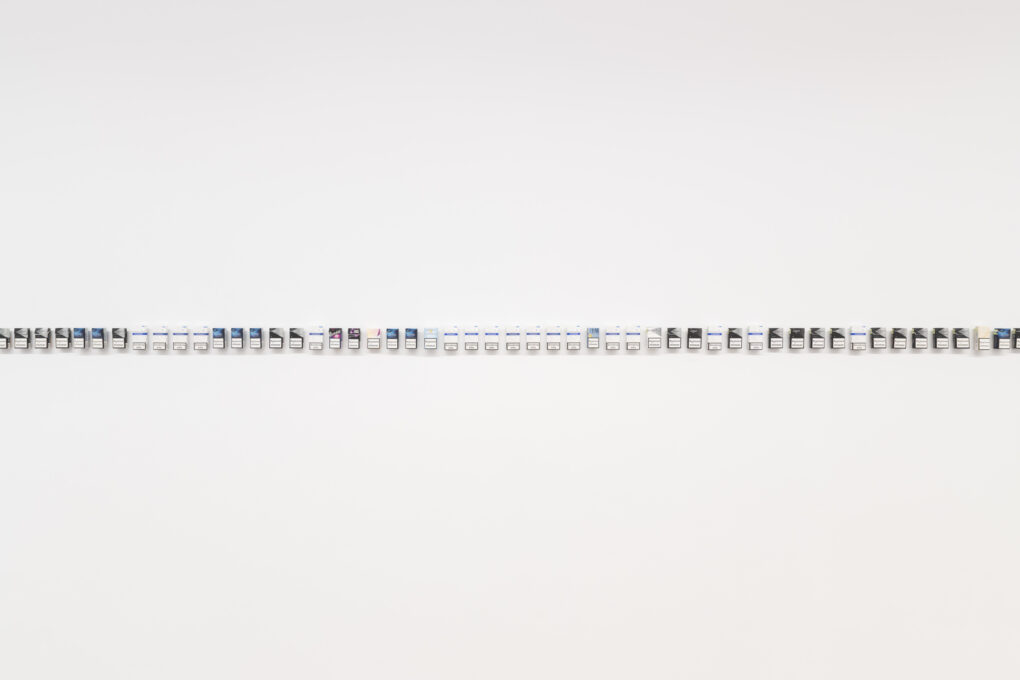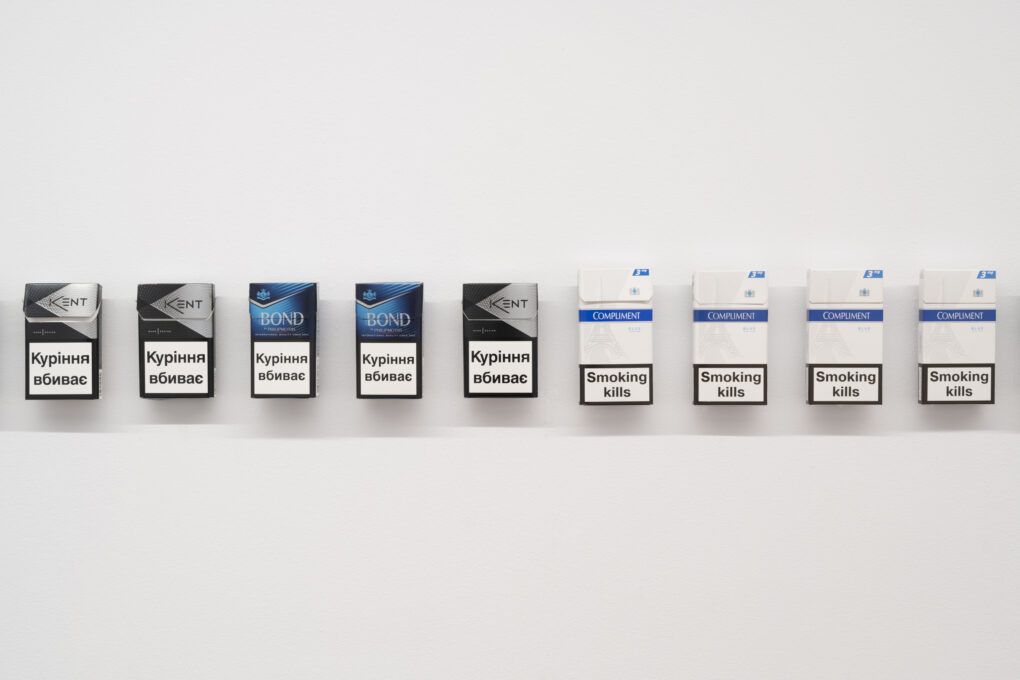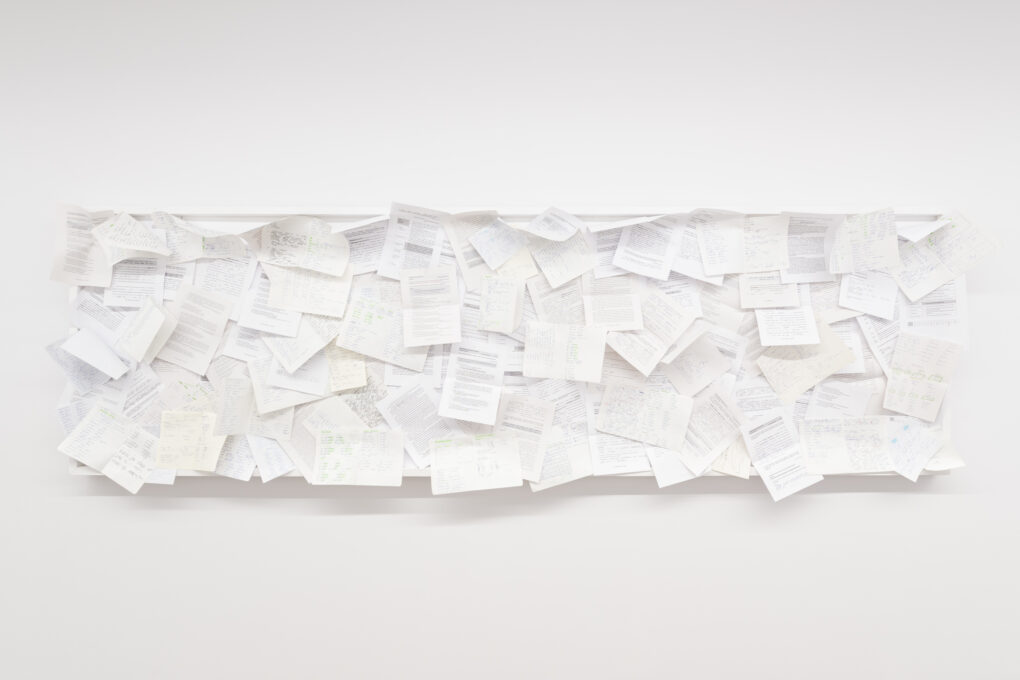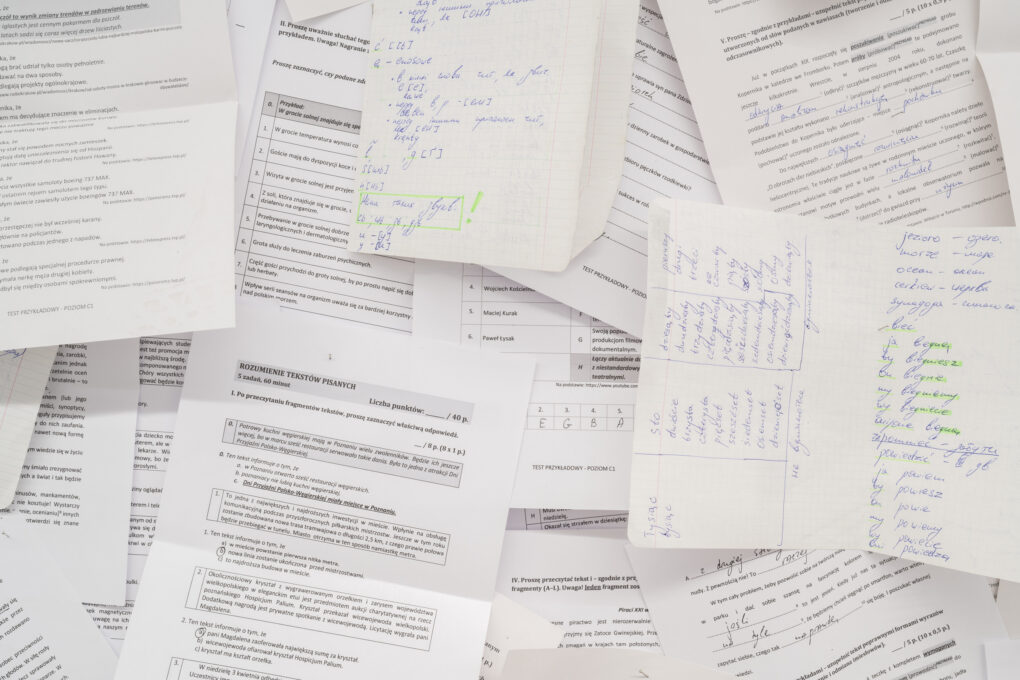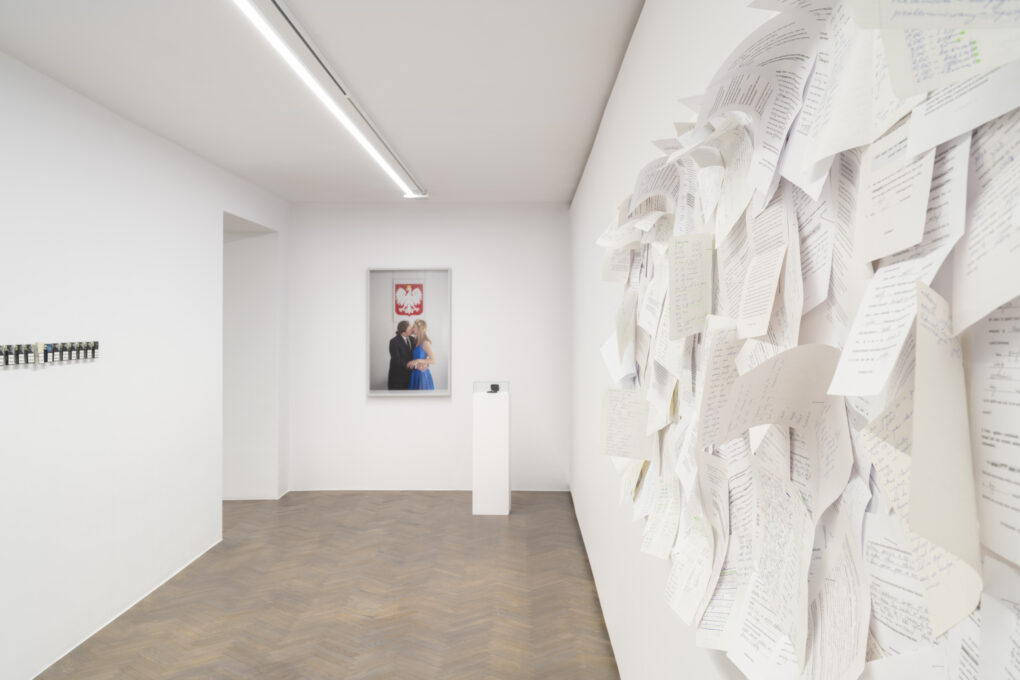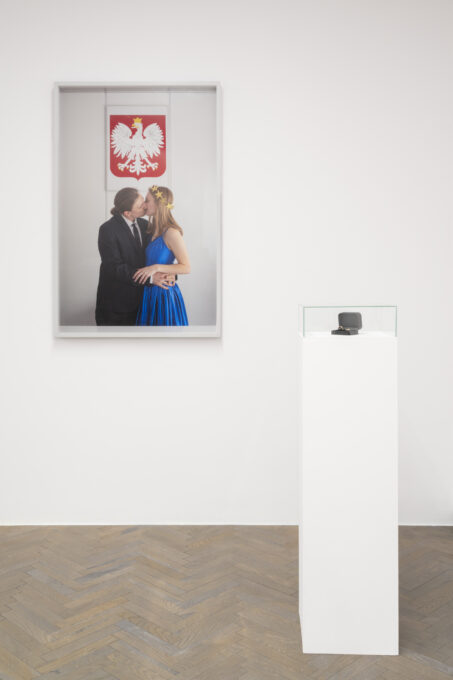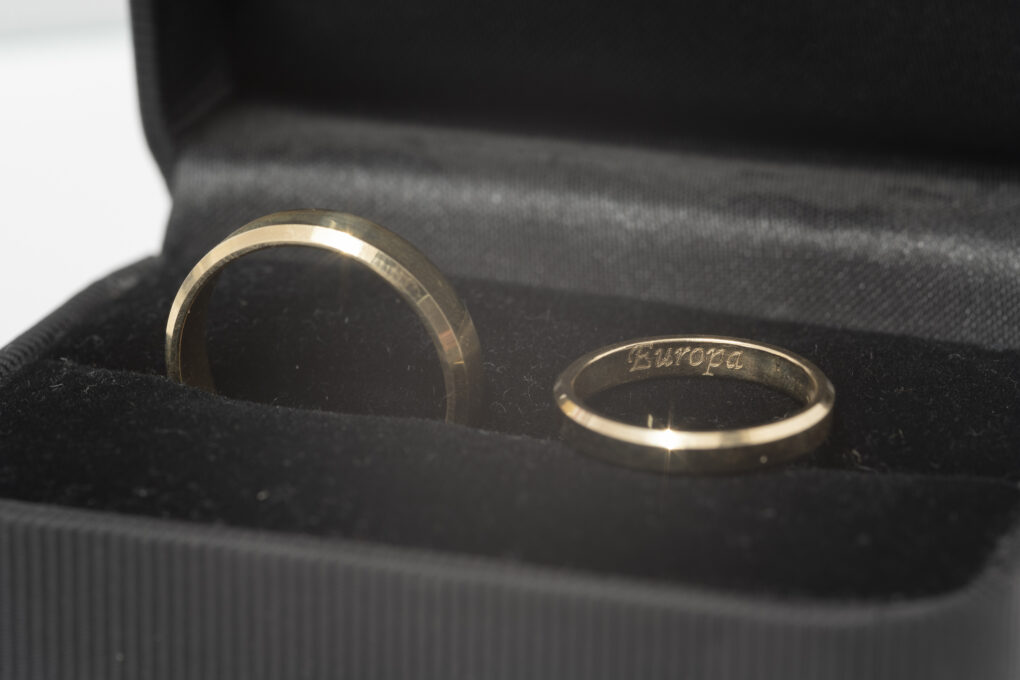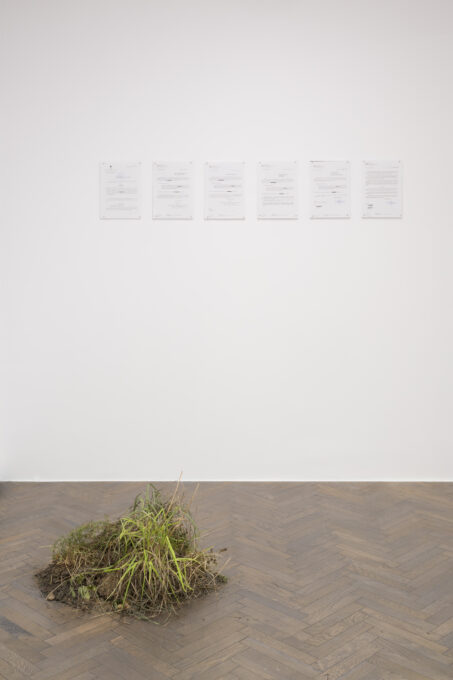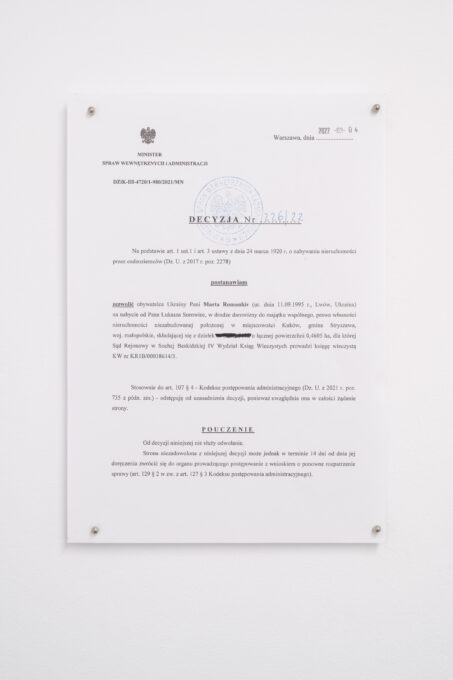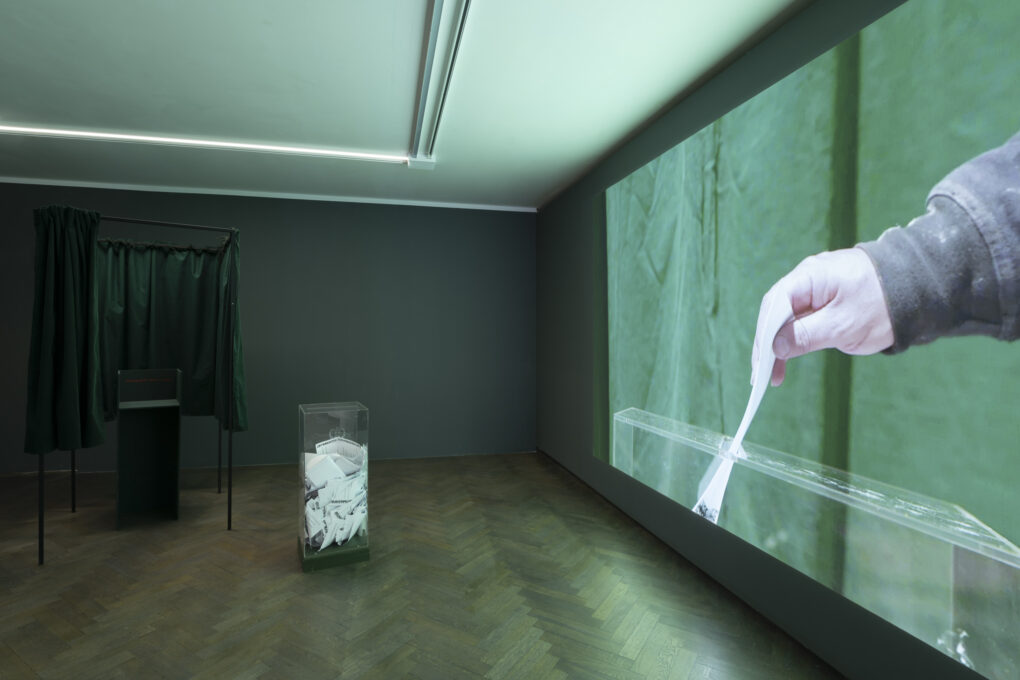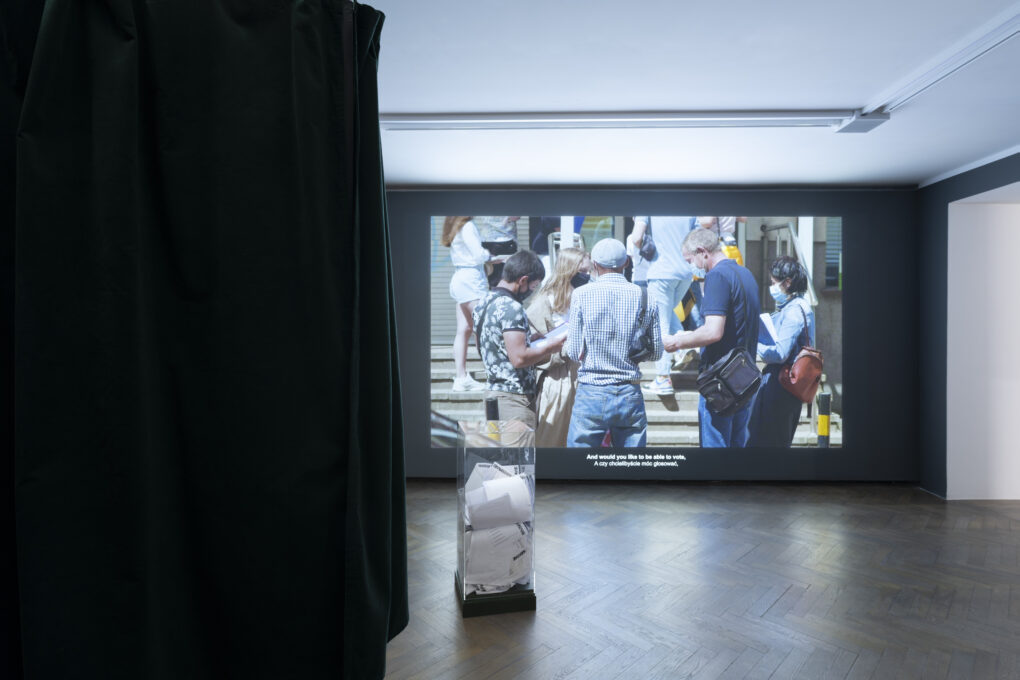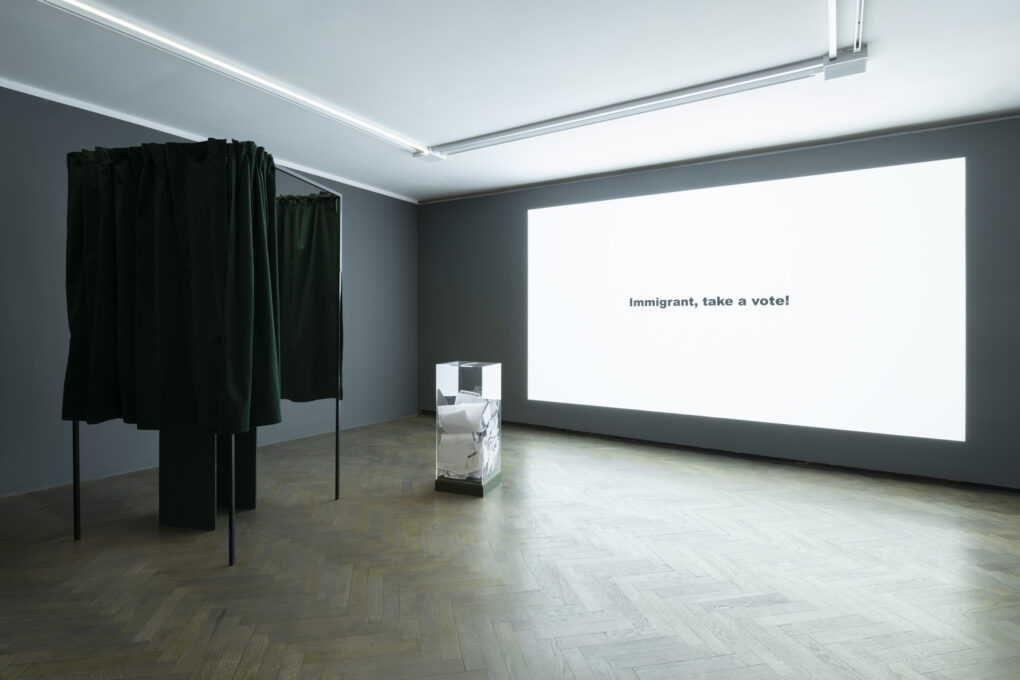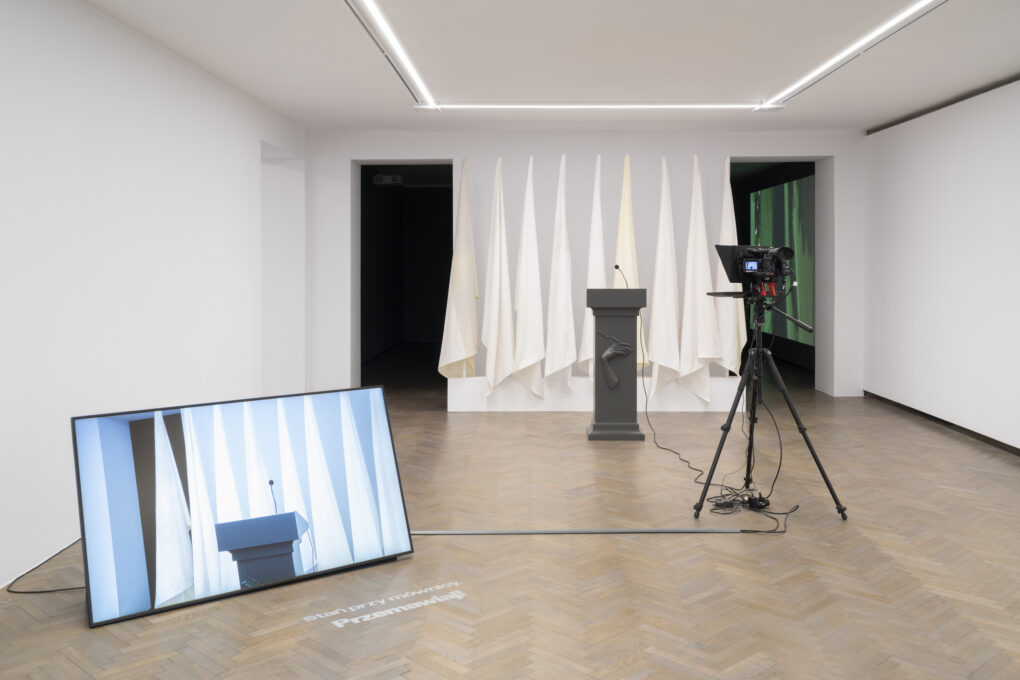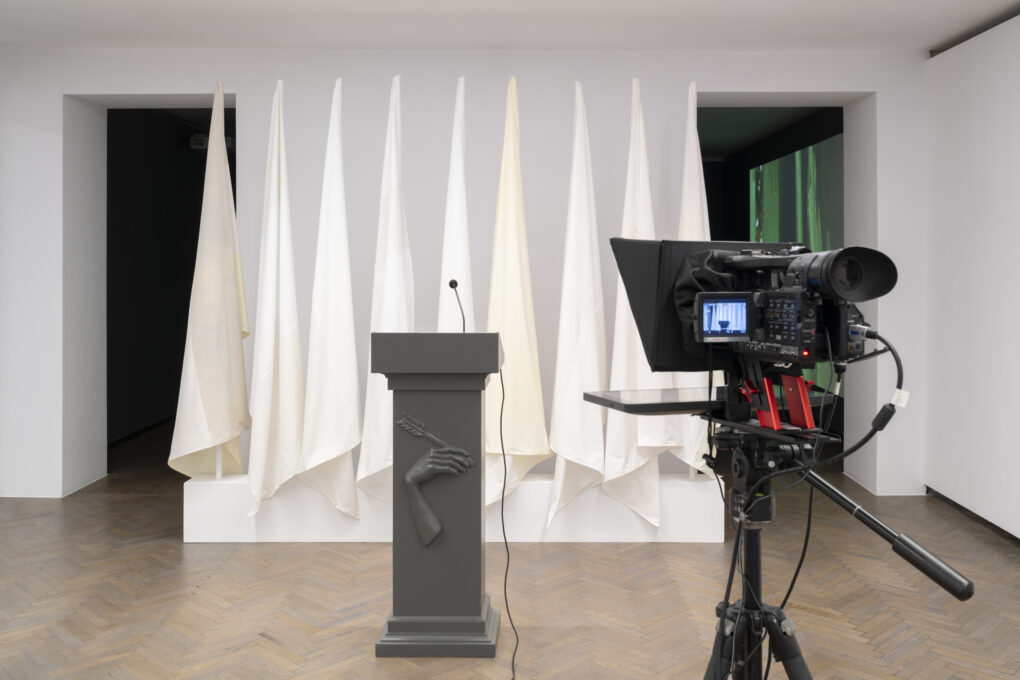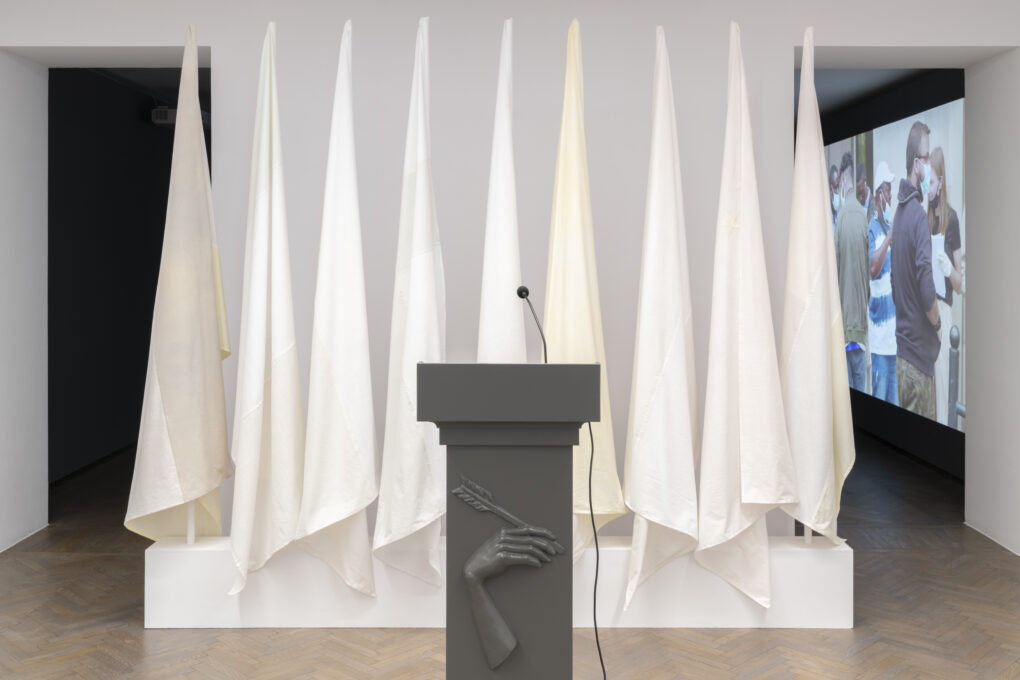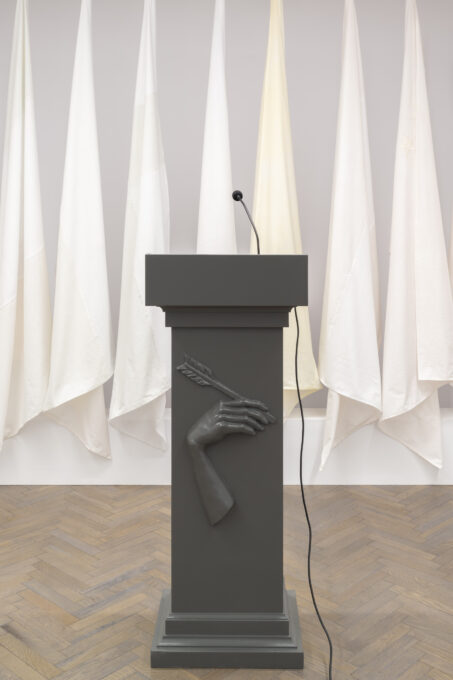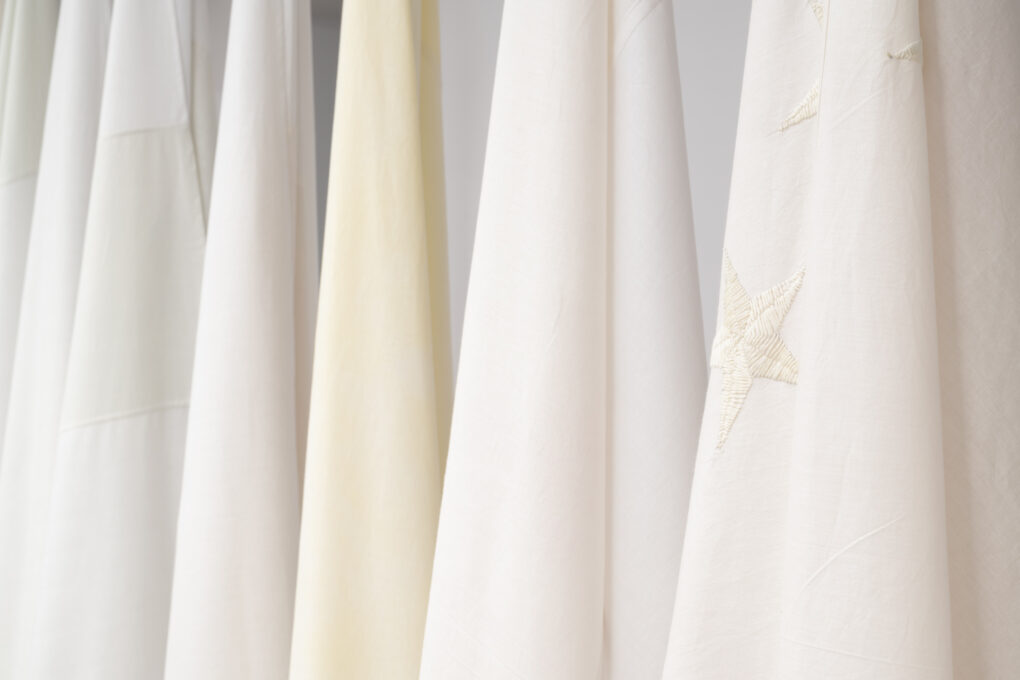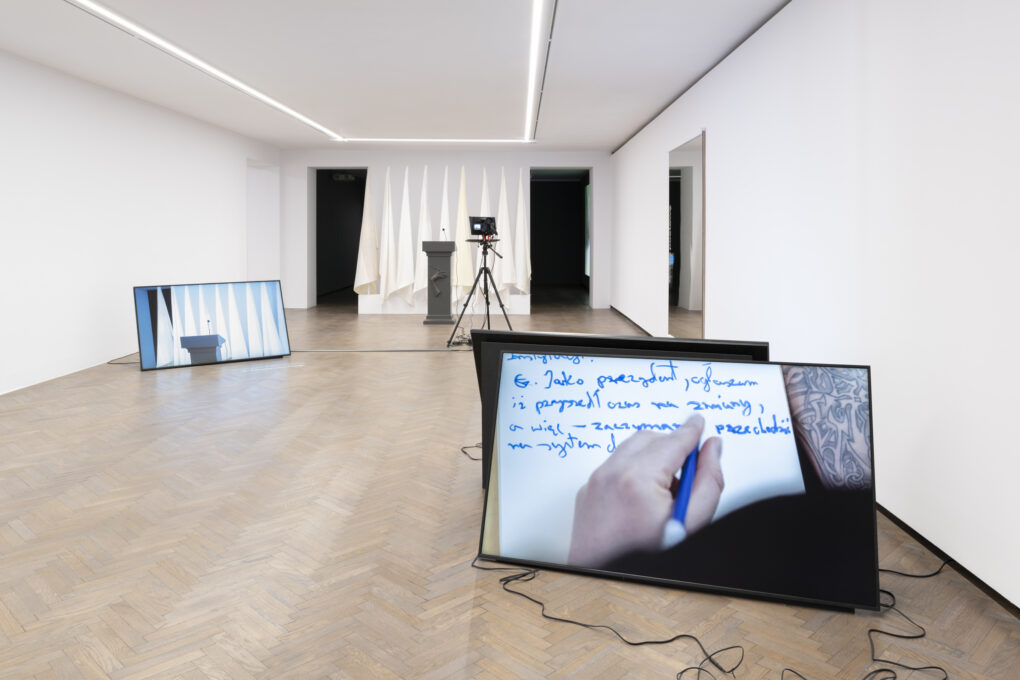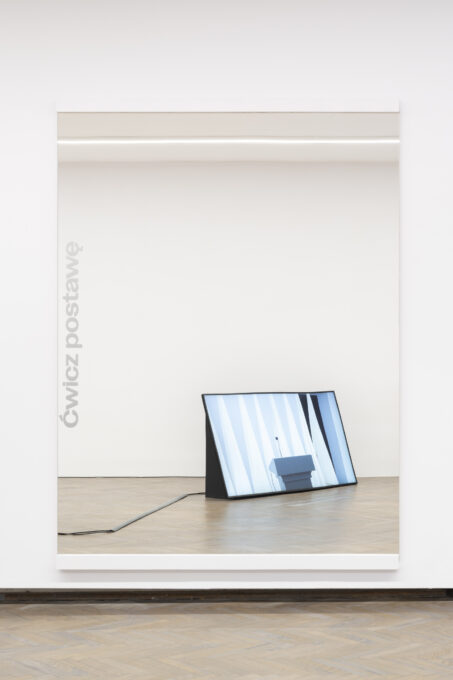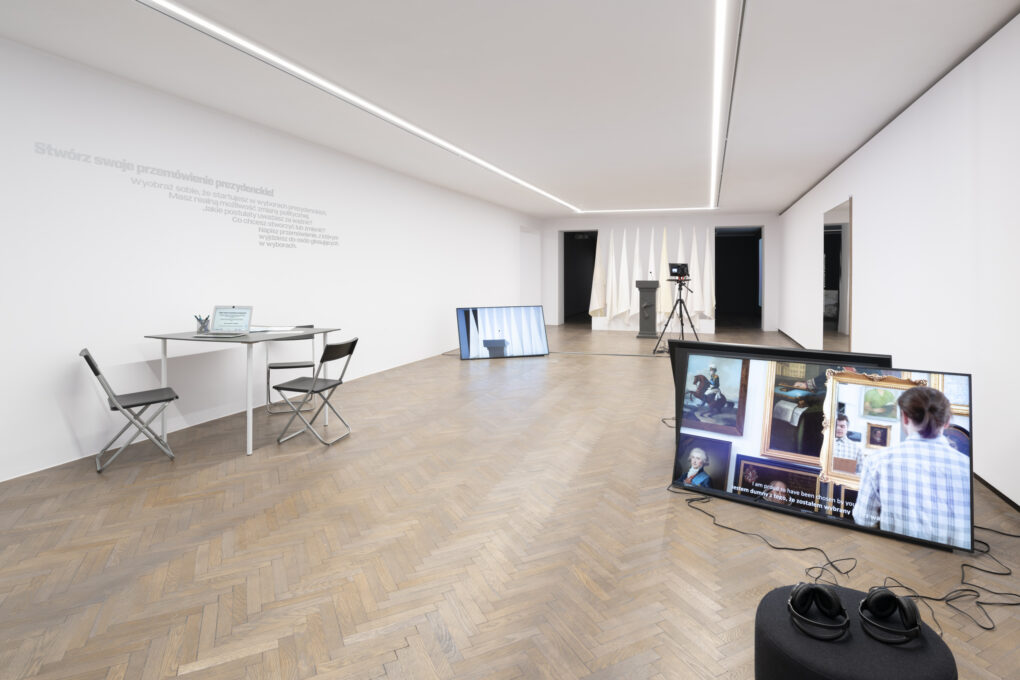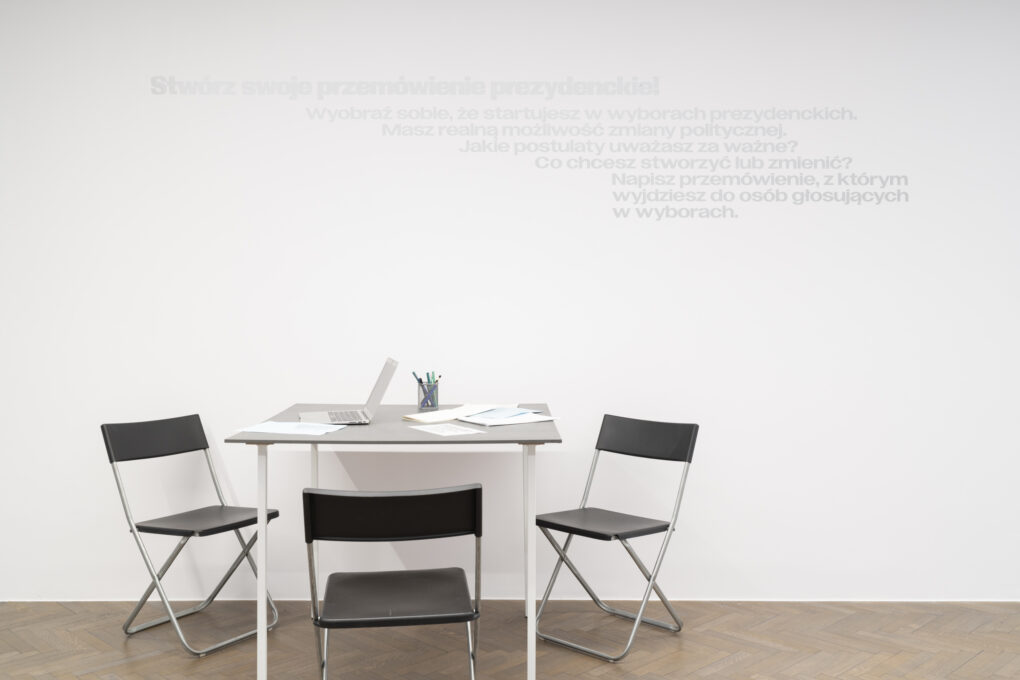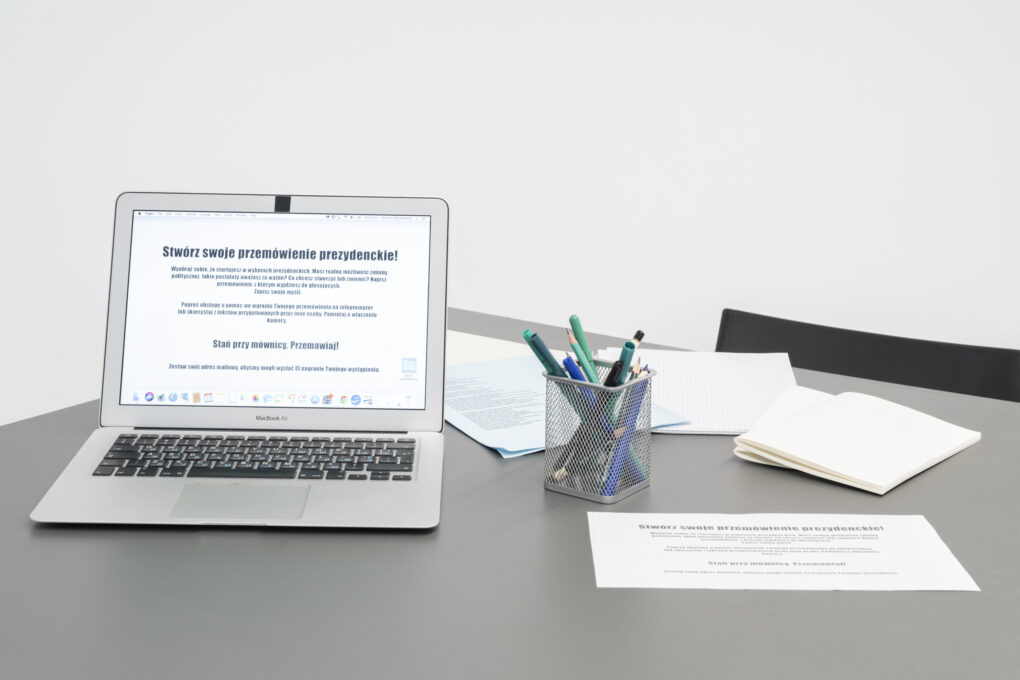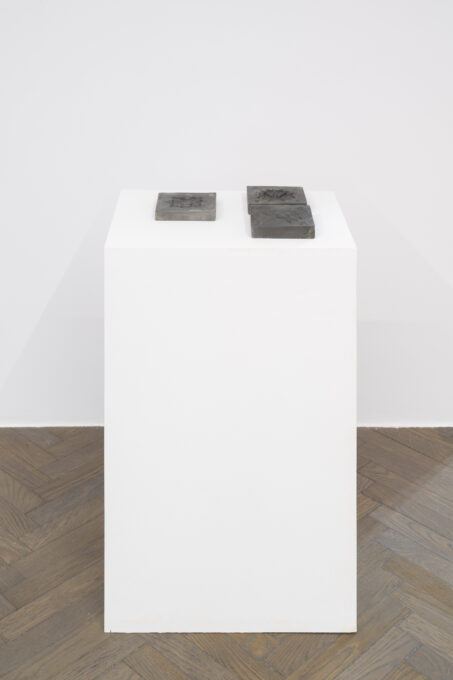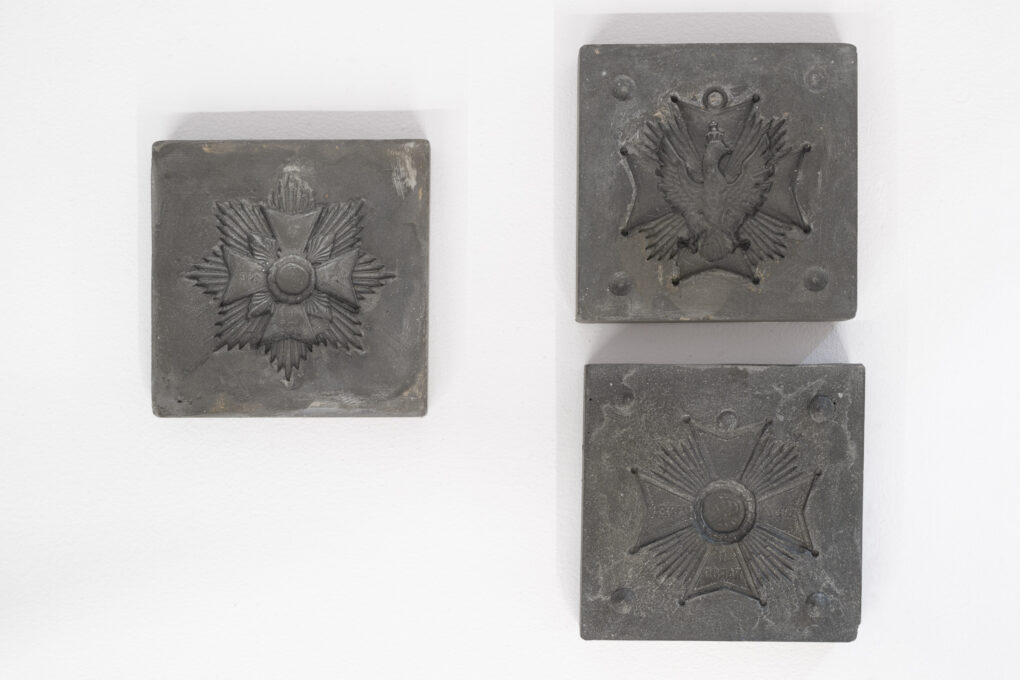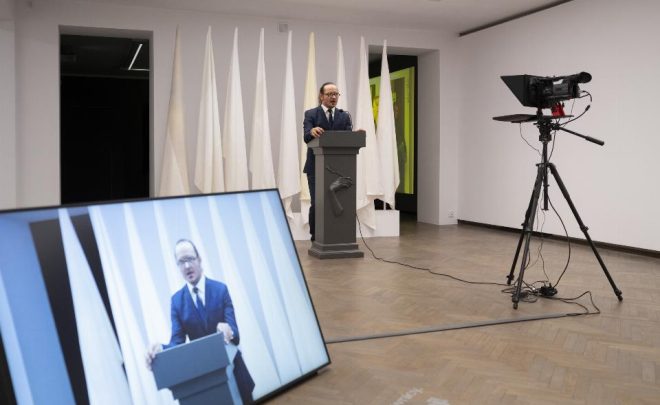Marta Romankiv. The First Impression is the Most Important
Marta Romankiv. The First Impression is the Most Important
17.08 at 19:00 – vernissage, free entry
Marta Romankiv works with engaged art. Her artistic practice often takes on a participatory character, situating itself on the borderline between activism, art and social science. The centrepiece of the exhibition ” The First Impression is the Most Important” is the artist’s latest project The Practice Room, in which she invites migrants to create their own presidential speeches. Romankiv thus asks questions about the passive electoral right of non-citizens* and the mechanisms used in politics. The project consists of video documentation of a workshop and lecture on public speaking (from which the title of the exhibition is taken), a space to write, practise and deliver one’s own speeches, and their growing archive.
The Ukrainian-born artist has lived in Poland for eight years. The exhibition includes works based on her own experience, as well as participatory projects on civil rights aimed towards migrants. These result in visions of the future, expressions of will and proposed solutions to the problems faced by people who do not have the right to vote or to be elected by their communities. Romankiv treats art as a space in which ideas that are still impossible today can be articulated, seeing her role as an initiator of community actions.
* Non-citizens – people who do not have citizenship of their country of residence.
Marta Romankiv (b. 1995, Lviv) is an interdisciplinary artist, creator of installations, video works and social situations. She graduated in artistic ceramics from the Lviv State Institute of Decorative and Applied Arts. She continued her studies in Poland – at the Faculty of Art of the Pedagogical University in Krakow, and received her MA degree from the Academy of Art in Szczecin. She is currently a doctoral student at the Academy of Fine Arts in Gdańsk.
Marta Romankiv. The First Impression Is the Most Important
One of the most significant changes occurring in recent years in Polish engaged art is its increasing inclusivity. Works dedicated to marginalised groups have only recently been created by people who share their experience. Marta Romankiv is interested in civil and labour rights, as well as in the social exclusion of people with a migration background.
Born in Ukraine herself, she has lived in Poland for eight years. Personal experiences are the inspiration and starting point for many of her works. The artist calls it the autoethnographic method. She applies it looking at her own life – a migrant from Ukraine in Poland – In its political and identity dimensions.
Among the first works completed by Romankiv after her arrival in Poland is the project One Two-Hour Lecture (2016), which addresses the issue of charging university fees from Ukrain- ian people. Due to the very high costs, the artist was unable to study at the Academy of Fine Arts at the time. Selling illegally imported cigarettes from Ukraine, she wanted to find out how long it would take to finance her studies from such work available to Ukrainian migrants. At the time, the income from selling sixty packs of cigarettes was approximately the value of one two-hour lecture at the Academy of Fine Arts. This part of the exhibition also includes Notes from Polish, created between 2014 and 2023 – an installation documenting the years-long process of learning the language. Romankiv points out how, when trying to fit in with the prevailing ‘norm’ in Poland, migrant people often try to get rid of the foreign accent by which they are perceived as ‘Other’. The exhibition’s opening video Articulation Speeches (2023), created in collaboration with Sandra Soldatova and Teodor Ajder, is also dedicated to this problem. Today, the artist sounds out the legal difficulties faced by migrants in Poland. She draws attention to the constant effort made by migrants from outside the European Union to obtain citizenship – and thus full rights – of their country of residence. The aforementioned works are accompanied by two more projects: one documenting the artist’s Wedding (2021) with a Pol-ish citizen, and the other documenting the difficult process of obtaining land ownership for a for- eigner (My Soil, 2022).
When the artist’s friends voted in the 2019 parliamentary elections, Romankiv, who had been living in Poland for four years at the time, realised that she had no rights to politically shape her surroundings. At the same time, she noticed that the parties did not raise the topic of migration policy and became convinced that the reason for this was the fact that migrants could not vote. The following year, before the presidential election, the project Immigrant, take a vote! was created. The artist prepared ballot papers in several languages. Under the foreigners’ affairs departments at the Provincial Offices, she and the volunteers accompanying her set
up a ballot box, a voting table and a curtain, and then invited non-Polish citizens to cast a sym- bolic vote in the presidential election. As Romankiv says, for the people voting outside the offices, this experience was more than just participating in an artistic activity. It was the first time they were able to express their will in the country where they live and work. The never-opened ballot box symbolises their ‘not counting’ votes.
The title of the exhibition “The First Impression Is the Most Important” comes from a lec-ture for migrant people on public speaking. In the main exhibition space, Romankiv develops a vision in which they have political and social agency. The different elements of the Practice Room arranged here invite them to create presidential speeches. This time Romankiv offers migrants not only the opportunity to vote – but also to run for election. Among other things, there is a video with the aforementioned lecture by Dorota Warakomska (who also trains Polish politicians). It is accompanied by a recording of the workshop she led (at the invitation of Romankiv) for migrants, which took place in the Portrait Cabinet of the Museum of Warsaw honouring Polish politicians. There are also tools for writing, practicing, voicing and recording one’s own prefaces. The artist offers a space to create visions for the future of the country and proposed solutions to the problems faced by people who do not have the right to vote and cannot be elected by their communities. Romankiv seeks to change the perception of migrant people – from an ‘economic solution’ to new inhabitants. The title of the exhibition also refers to the experiences of migrant people: the feeling that they are judged by a stereotype or a superficial first impression. The artist is keen to emphasise the importance of all the people who build a community. This is why Romankiv, who also initiated the creation of the Community Committee of Domestic Workers at the Inicjatywa Pracownicza trade union (the first trade union organization in Poland founded by migrant women), places the The Order of the White Eagle Casting Moulds in the Practice Room. With this decoration reserved for outstanding individuals, she would also like to honour people performing simple jobs at all levels of society.
Romankiv’s engaged artistic practice often takes on a participatory character, situating itself on the borderline between activism, art and social science. The artist is curious about the experiences of others and creates safe spaces where they can co-create the community actions she initiates. She shares the empowerment that her presence in the field of art gives her with people with whom she shares a common experience. She treats art as a space in which ideas that are impossible outside of it can be realised. Such as co-deciding the fate of the country by migrants, their empowerment or going beyond the archaic, in her opinion, division of Polish residents into citizens and non-citizens. In her exhibition at the Arsenal Gallery in Bialystok, Romankiv asks whether the accepted principles of democracy are adequate to the actual image of contemporary societies.
Katarzyna Różniak-Szabelska
Works on show:
Marta Romankiv, Notatki z polskiego / Notes from Polish, 2023
wood, foam board, paper
Marta Romankiv, Moja ziemia / My Soil, 2022
soil, documents
Marta Romankiv, Jeden dwugodzinny wykład / One Two-Hour Lecture, 2016
video, 5′55″; 60 empty cigarette packs
Marta Romankiv, Ślub / Wedding, 2021
photograph documenting the action, 2 gold wedding rings
Marta Romankiv, Immigrant, take a vote!, 2020
video documentation of the public action, 17′24″
ballot box (acrylic glass, HDF board), voting booth (steel rack, fabric),
voting table (HDF board)
Marta Romankiv, Bez tytułu 1 / Untitled 1, from the series Sala do ćwiczeń /
Practice Room, 2023
lectern (HDF boards), 9 flags (wood, fabric), video camera, prompter
Marta Romankiv, Bez tytułu 2 / Untitled 2, from the series Sala do ćwiczeń /
Practice Room, 2023
video (documenting a lecture on public speaking), 10′5″
Marta Romankiv, Bez tytułu 3 / Untitled 3, from the series Sala do ćwiczeń /
Practice Room, 2023
video (documenting a workshop on presidential speeches), 6′32″
Marta Romankiv, Przemowy artykulacyjne / Articulatory Speeches, from the series Sala do ćwiczeń / Practice Room, 2023
video, 4′58″, text Teodor Ajder, performing Sandra Soldatowa
Marta Romankiv, Formy do odlewu Orderu Orła Białego / The Order of the White
Eagle Casting Moulds, 2023
3 objects, polymer plaster
Colophon
Collaboration on video works:
Articulatory Speeches
Text: Teodor Ajder
Performing: Sandra Soldatowa
Immigrant, take a vote!; One Two-Hour Lecture
Video shooting: Łukasz Surowiec
Untitled 2, Untitled 3 – from the series Practice Room
Video shooting: Łukasz Surowiec
Organisation of workshops on public speaking: The Museum of Warsaw team
(Zofia Rojek, Karolina Iwańczyk, Marcin Matuszewski, Dorota Migas-Mazur)
Exhibition visual identity:
Karolina Pietrzyk, Tobias Wenig
The Arsenal Gallery in Białystok team:
Curator: Katarzyna Różniak-Szabelska
Production and coordination: Ewa Chacianowska, Katarzyna Różniak-Szabelska
Copy-editing and proofreading: Ewa Borowska
Exhibition realisation: Maciej Zaniewski, Kacper Gorysz, Michał Małeczek, Piotr Sosiński, Mateusz Smorczewski, Zbigniew Świdziński
Promotion: Gabriela Owdziej
Education: Justyna Kołodko-Bietkał, Iza Liżewska, Katarzyna Kida
Exhibition supervisors: Maja MacKenzie, Mateusz Smorczewski, Małgorzata Kopciewska, Piotr Sosiński, Roksana Mroczko, Urszula Cieślak, Julia Ryszkiel, Piotr Trypus
Cleaning: Beata Zalewska
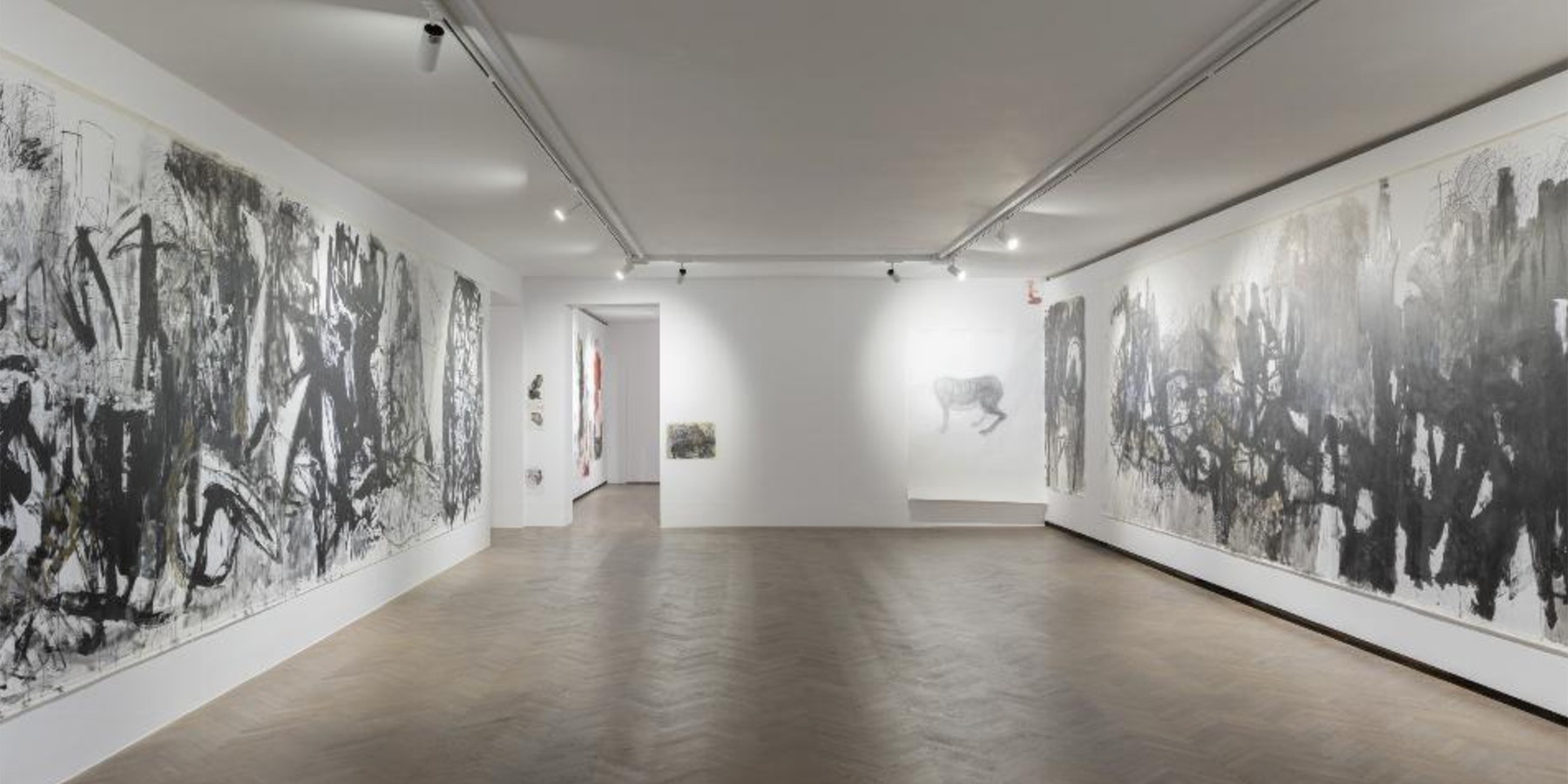
PLAN YOUR VISIT
Opening times:
Thuesday – Sunday
10:00-18:00
Last admission
to exhibition is at:
17.30
